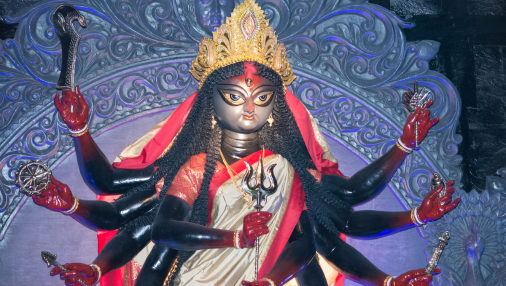Maa Kali Temple – Complete Travel Guide
Explore the history, mythology, festivals, architecture, best time to visit, and travel tips to plan your divine journey to Maa Kali Temple.
India is a spiritual land known for its vibrant culture, mythological stories, and powerful deities. Among the many divine shrines, Maa Kali Temples hold a special place for devotees who worship the goddess of power, protection, and transformation. Visiting a Maa Kali Temple is not just a spiritual journey but also a cultural experience that immerses you in devotion, rituals, and history.
History and Mythological Significance
Maa Kali Temples are spread across India, but each carries its own unique story and significance. Maa Kali, an incarnation of Goddess Parvati, is revered as the fierce destroyer of evil and the protector of her devotees.
According to the Devi Mahatmya in the Markandeya Purana, Maa Kali appeared during the battle between gods and demons to defeat Raktabija, a demon who multiplied with every drop of blood. Her unstoppable power symbolizes the triumph of good over evil. Temples dedicated to her are considered Shakti Peeths, where divine energy is at its highest.
Architectural Beauty
The architecture of Maa Kali Temples blends traditional Hindu styles with striking spiritual imagery. The sanctum usually houses an idol of Maa Kali standing over Lord Shiva, symbolizing destruction and regeneration.
Temples are adorned with carvings, sculptures, and paintings narrating mythological stories. The spiritual aura, chants, and fragrance of incense make the visit deeply memorable.
Religious Importance
Maa Kali is believed to remove fear, protect from evil, and grant strength to overcome challenges. Devotees visit her temples to:
- Pray for protection and safety from negative forces.
- Seek courage and determination in difficult times.
- Overcome obstacles in life and career.
- Attain spiritual awakening and inner strength.
Festivals and Celebrations
The most important celebration at Maa Kali Temples is Kali Puja, coinciding with Diwali in West Bengal, Assam, Odisha, and Bihar. The temple is illuminated, devotees perform night-long prayers, and red hibiscus flowers—Maa Kali’s favorite—are offered.
Other major celebrations include Navratri, Durga Puja, and Shivratri, when the temple atmosphere is filled with rituals, chants, and cultural programs.
Best Time to Visit Maa Kali Temple
- October to March: Ideal weather for darshan and sightseeing.
- Kali Puja & Diwali: Experience grand rituals and vibrant decorations.
- Navratri: Nine days of devotion and festivities dedicated to the goddess.
How to Reach Maa Kali Temple
- By Air: The nearest airport depends on the temple’s location, e.g., Kolkata Airport for Kalighat Kali Temple.
- By Train: Railway stations near major temples provide easy access.
- By Road: State-run buses, taxis, and self-drive options are widely available.
Nearby Attractions
- Local Markets: Explore handicrafts, souvenirs, and authentic cuisine.
- Cultural Landmarks: Museums, forts, and heritage sites near the temple.
- Other Temples: Visit additional Shakti Peeths and shrines in the region.
Travel Tips for Visitors
- Dress Modestly: Wear respectful clothing suitable for a temple.
- Follow Rules: Avoid restricted areas for photography.
- Offer Red Hibiscus Flowers: Considered auspicious for Maa Kali.
- Visit Early: Morning visits offer peaceful darshan.
- Stay Prepared: Carry water, snacks, and essentials for long trips.
Accommodation Options
Choices range from budget dharamshalas with basic amenities to mid-range hotels and luxury stays in nearby cities. Pilgrims often prefer simple dharamshalas, while tourists can opt for comfortable hotels offering modern facilities.
Why You Should Visit Maa Kali Temple
Visiting a Maa Kali Temple is more than a pilgrimage—it’s an experience of faith and transformation. The temple offers mythology, architecture, and spirituality in one sacred space. Devotees leave with renewed strength, peace, and divine blessings.
Whether you are a devotee seeking courage, a traveler exploring cultural heritage, or a seeker in search of inner peace, Maa Kali Temple promises a spiritual journey worth cherishing.

